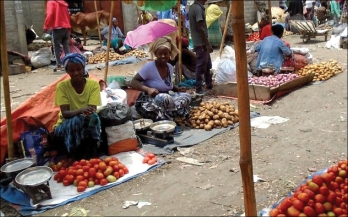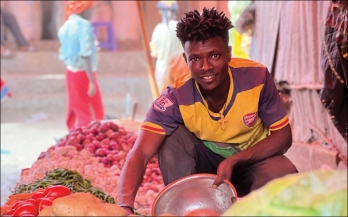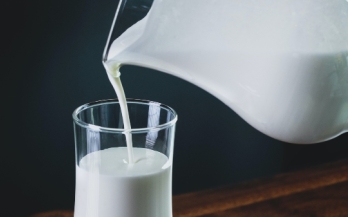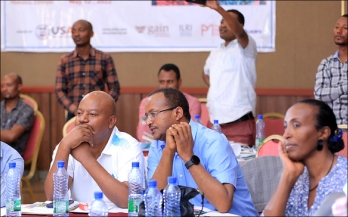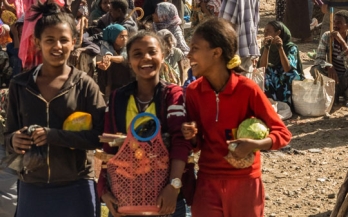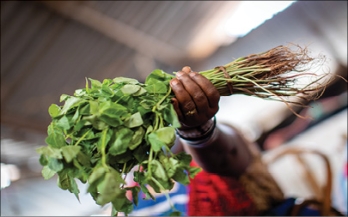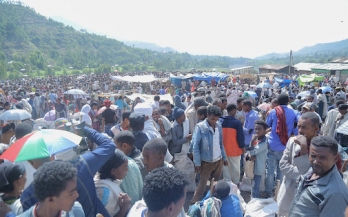EatSafe conducted three data collection activities, including interviews, observations, and a randomized experiment, to understand consumers’ and vendors’ food safety knowledge, attitudes, and practices in Hawassa, Ethiopia.
EatSafe conducted a Story Sourcing activity, or the semi-formal process that uses journalistic techniques to gather stories directly from the audience of interest, to gather stories from traditional food market vendors and consumers in Hawassa, Ethiopia.
This report is an appraisal of a methodological approach conceptualized and commissioned by GAIN and designed by Euromonitor to assess the informal dairy market in Ethiopia using formal market approaches. This work was conducted in 2019 with support from Wageningen University under the Agriculture 4 Nutrition and Health Program.
The 2022 EatSafe Innovation Challenge received 700 applications from students, researchers, and entrepreneurs with ideas how to adapt food system innovations to traditional food markets contexts and along value chains to solve food safety issues in Nigeria and Ethiopia.
During program startup in Ethiopia, EatSafe identified and gauged stakeholders’ interest and influence in food safety. EatSafe then convened a series of events to engage these stakeholders at local and national levels prior to intervention implementation.
EatSafe conducted a review on published articles of foodborne hazards present in foods and beverages commonly bought and sold in traditional food markets in Ethiopia.
Ethiopia’s 2018 Food and Nutrition Policy cited food safety as critical to improving nutrition and public health, though responsibility for implementation remains spread across a dozen federal governing bodies. Regulations also omit traditional markets where many Ethiopians procure food, increasing food safety risks.
Through its Food Systems Summit Member State Dialogues and National Pathway, Ethiopia has shown strong political commitment to transforming its food system. The need to address food issues systemically is increasingly recognised. We can no longer afford progress in one area driving setbacks in another.
EatSafe evaluated the regulatory and policy landscape for food safety in Ethiopia at the national and regional levels, which included an assessment of existing regulations and resulted in recommendations for strengthening implementation.
EatSafe conducted a systematic search and review process of 116 published studies on the perspectives and practices of consumers and vendors related to food safety in Ethiopia.
